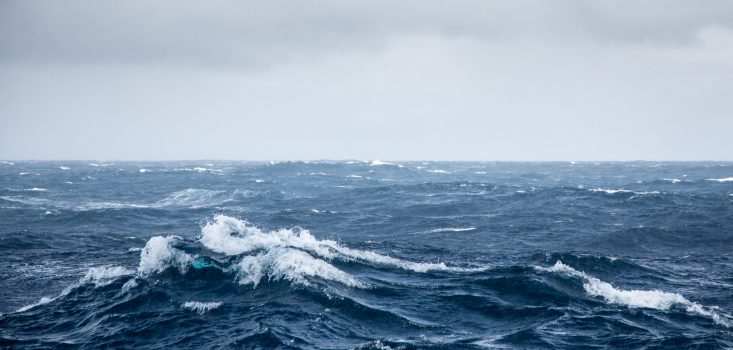A landmark resolution was adopted, in June 2015 by a consensus of UN member states, to develop a legally-binding treaty for the conservation of marine life beyond national territorial waters – that area of the ocean shared by all. Resolution UNGA 99/292 signalled a major step forward toward convening an intergovernmental negotiating conference that would finalise the terms of the new treaty, possibly in 2018. The resolution called for a two-year process which began last week at the UN Headquarters in New York; Dona Bertarelli attended the meeting on behalf of the Bertarelli Foundation and left New York feeling positive about the future:
The sea is in the blood of my brother and I. We’ve sailed since we were children, first in Italy with our parents, and then as we’ve grown older, we have both competed, raced yachts and broken records. Our love of the sea has spread to our own children; it’s because of the next generation, and those that will follow, that we care so passionately about the health of the oceans, and are determined to play our part in protecting them.
The Bertarelli Foundation is proud to have been at the centre of efforts to create Marine Protected Areas. But we know that these can only ever cover a tiny proportion of the world’s oceans. That’s why the United Nations initiative to protect the high seas is so important. Ultimately, the aim is to have a treaty that will include capacity-building, technology transfer, and crucially, good governance. It will need to consider fisheries and marine genetic resources, as well as the fast-developing technologies that enable deep-sea mining.
The first formal step towards creating that treaty came last week, with the initial Preparatory Committee meeting (PrepCom) at the UN HQ in New York. I was privileged to attend on behalf of the Bertarelli Foundation and meet the key players attempting to bring about a robust and ambitious accord. The Chair of the PrepCom, Ambassador Eden Charles, told me how important it is for there to be a strong agreement – and is acutely aware of the challenges of getting all member states to agree. But he was encouraged by the commitment and enthusiasm being shown in the meeting room: as I sat in the session it was good to hear that every country recognised the importance of the health of the seas, including landlocked states such as our home nation of Switzerland.
Ambassador Charles highlighted the efforts made by civil society even to get to this stage, and so I was delighted that the Bertarelli Foundation could bring together representatives of the lobby groups and nation states, to enable informal conversations and an opportunity to discuss what is at stake.
There is no doubt that a huge amount of work lies ahead. It will take years to reach a final agreement and iron out the details. As Lisa Speer from the National Resources Defence Council pointed out to me, though, this is about figuring out the future of half the planet. Like sailors battling for the finish line, what’s needed now is determination and tenacity: and I saw plenty of that in New York.
Dona Bertarelli




